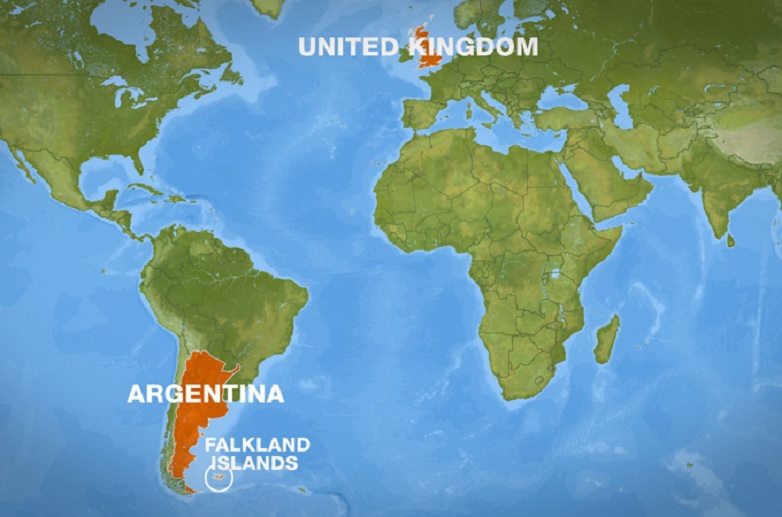Relations between Argentina and Great Britain have been marked by diplomatic tensions derived from an old and unresolved sovereignty dispute over the Malvinas Islands, as Argentina calls them, or Falklands, as England knows that archipelago in the south of the American continent.
Probably because of this, the reaction of Alberto Fernández’s government to the death of Queen Elizabeth II on Thursday was merely diplomatic:
“Argentina expresses its sorrow for her death and accompanies the British people and her family at this moment of grief,” the Ministry of Foreign Affairs expressed on its Twitter account.

Other Argentine politicians and officials also expressed their sadness at the death of the longtime British monarch without going beyond the polite.
However, none immediately evoked the war that confronted both countries in the Malvinas, which celebrated its 40th anniversary on April 2.
“The Malvinas were, are, and will be Argentine”, proclaimed Fernandez that day, during an official ceremony in which he paid tribute to the 649 young soldiers killed in the war, where 255 British and three islanders also lost their lives.
There have been long years of conflict over the 11,719 km2 archipelago, located some 600 km off the Patagonian coast and occupied by the United Kingdom since 1833.
For Argentina, its claim is legitimate, and the British military presence is nothing more than an “unjustified and excessive” foreign occupation.
“The Malvinas are part of our national territory. They have always been Argentine, and we will never yield in our claims,” insisted Alberto Fernandez.
The dispute originated more than 500 years ago: according to the Argentine Foreign Ministry, the islands were discovered in 1520 by the expedition of the Portuguese navigator Ferdinand Magellan in the service of Spain.
But the British government assured that the British navigator John Davies discovered them in 1592.
Tensions escalated over time and worsened under the dictatorship that took power in Argentina through a military coup in March 1976, led by General Jorge Videla, whose successor, Leopoldo Galtieri, led to a military confrontation with Britain.
The unequal war in the Malvinas, with the superiority of British forces, began on April 2, 1982, with the occupation of Port Stanley by Argentine troops, and ended on June 14 of that year, with the surrender of the South American army.
The most brutal blow for Argentina was the shipwreck, on May 2, 1982, of the cruiser ARA General Belgrano, whose sinking to the bottom of the Atlantic caused the death of 323 sailors, half of the Argentine soldiers fallen in the war.
The ARA General Belgrano had been sent to the area only 15 days before, with the mission of preventing the entry of British ships. It was attacked by the British nuclear submarine HMS “Conqueror” 35 miles south of the exclusion zone set by Great Britain around the Malvinas.
The British military victory paved the way for the re-election, in 1983, of Prime Minister Margaret Thatcher (nicknamed the “Iron Lady”), who was supported by Germany, Canada, the United States, Italy, France, and Japan during the war.
Despite the defeat of her army on the battlefield, the Argentines saw the fall that same year of the dictatorship responsible for flagrant human rights violations and the “disappearance” of more than 30,000 people under the military regime.
Although London and Buenos Aires re-established diplomatic relations in 1990, for Great Britain, the matter is a closed case, and it refuses to negotiate with the Argentine authorities on any issue related to sovereignty over the Malvinas.
For the influential Argentine newspaper “El Cronista”, the government of Fernández will have to examine the panorama that is opening up after the death of Queen Elizabeth II and the recent assumption of the new British Prime Minister Liz Truss, who has made harsh statements on the dispute over the archipelago.
“The analysis made by the Executive is that the next three months will be critical for a president coming up with multiple political and economic conditions, both internally and externally.
“In this scenario, and beyond the harsh discourse that Truss rehearsed on Malvinas when she was in charge of foreign relations in Boris Johnson’s administration, the forecasts are that she should not aggravate the panorama,” the newspaper pointed out.
With information from DW

